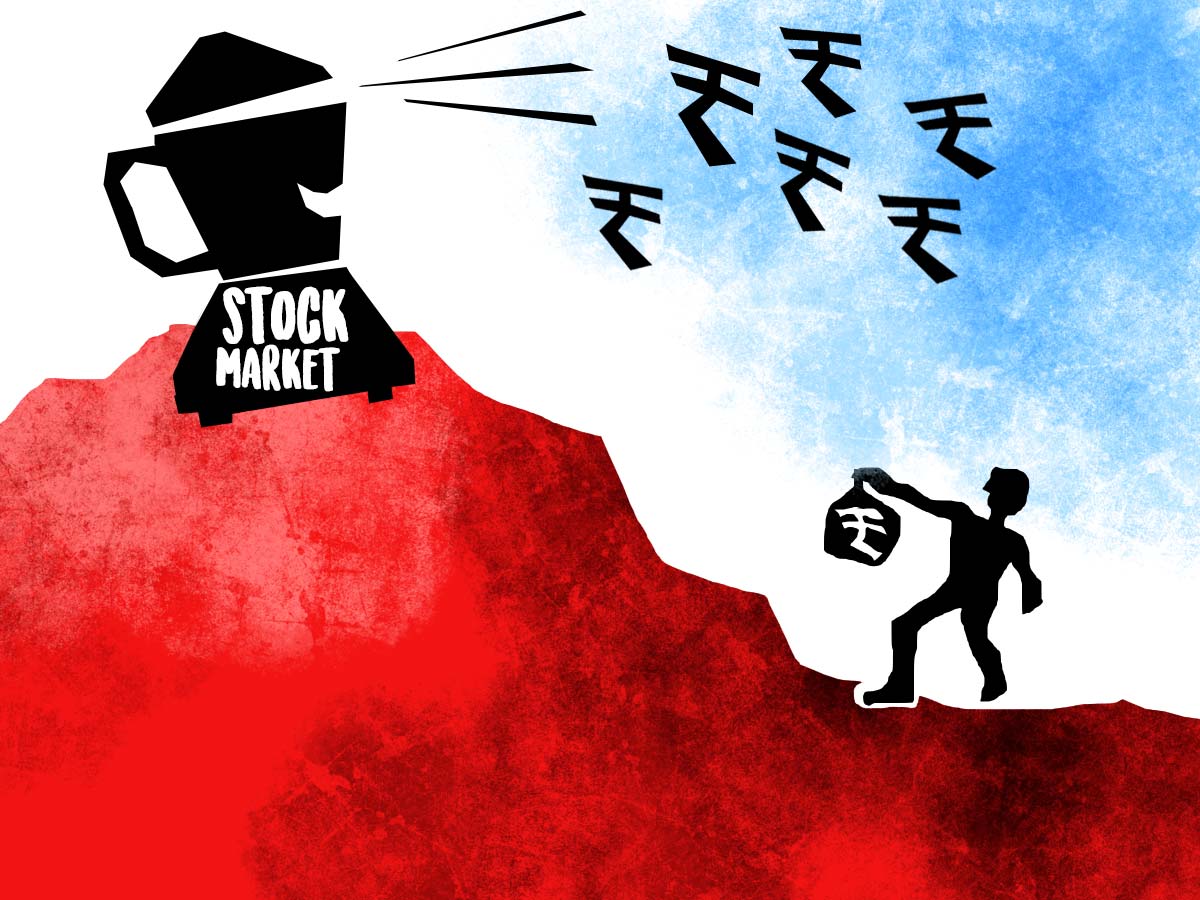Once a quality stock has been bought, the next challenge is to hold on to it -- no mean feat in this age of information overload and incessant noise.

Investors have experienced a humdinger of a bull run over the past year, especially in the mid and the small-cap segment.
The Nifty Midcap 150 index is up around 46 per cent over the past year while the Nifty Smallcap 250 index has delivered a humongous 51.7 per cent.
Younger investors experiencing their first bull run may be forgiven for harbouring the notion that they have discovered the El Dorado of investing: All they need to do is bet on small caps and the returns will roll in.
They should read portfolio manager Gautam Baid's book The Making of a Value Investor for a reality check.
This book is a compilation of the author's entries in his journal.
It contains his reflections and learnings from the brutal bear market in India from January 2018 to February 2020, when mid and small-cap stocks took a severe beating, followed by the pandemic-induced crash of March 2020.
A book in the journal format has its pros and cons. On the downside, the jottings occasionally appear random and disjointed with the author jumping from one topic to another (as is only to be expected in a journal).
At times, one wishes he had adopted the more traditional approach of organising his thoughts on various subjects into distinct chapters.
But the format has its upsides, too. The reader becomes a co-traveller as the author copes with the challenges of a bear market.
He shares in the utter hopelessness as stocks fall month after month, with no sign of respite, as some lose 70 to 80 per cent of their peak value.
Every flaw, whether it is the business model, promoter intent or management quality, is exposed and punished ruthlessly by the market.
The reader's emotions yo-yo with that of the author as the latter's hopes of a revival get aroused by dead cat bounces, only to be dashed in a few days.
Mr Baid's silver bullet, created while he suffered this harrowing experience, is to construct a portfolio filled with high-quality stocks.
During bull markets, he says, one can invest in junk stocks and make a large paper fortune.
But when a bear market inevitably arrives, both quality and junk stocks fall.
During the next recovery, quality stocks will bounce back, junk stocks may not, or they may do so only after languishing for a long while.
The author asserts that the value a portfolio retains after recovering from a bear market is far more crucial than the paper profits notched up during a bull run.
The main stumbling block value-conscious investors encounter when trying to invest in quality stocks is their expensive valuations.
Mr Baid's counsel in this regard is to forgo the returns of the first year or so.
The returns from the second year onward, he asserts, will compensate the investor adequately over a prolonged holding period.
Mr Baid recommends buying businesses with strong moats that can grow their earnings for an extended period.
Such a business might appear expensive based on current earnings.
But the longevity of its competitive advantage, he says, will drive the stock price far higher than market participants predict.
He also suggests that in picking quality stocks, investors' focus should shift from its entry-level price-to-earnings (P/E) ratio to the sustainability of the company's competitive advantage.

Once a quality stock has been bought, the next challenge is to hold on to it -- no mean feat in this age of information overload and incessant noise.
Investors need to focus on two critical aspects: Whether the revenue is growing at a healthy clip and the competitive advantage is intact.
If the answer to both questions is yes, the investor should stay put.
During phases of market euphoria, when prices of junk stocks race ahead, investors must avoid the temptation to sell their blue chips.
During prolonged bear phases, again, they must not fall prey to the all-encompassing pessimism and sell these gems.
The only circumstance in which these stocks may be sold is when their P/E multiples reach absurd levels of 150 to 200.
Having built a quality portfolio, investors must re-evaluate their investment thesis periodically as business fundamentals can deteriorate rapidly owing to technological and competitive developments.
One benefit of building a quality portfolio is that the investor need not be stricken by worry during market downturns.
While Mr Baid was jittery during 2019 and 2020, he faced the crash of March 2020 with equanimity because he had by then moved his portfolio to blue chips.
For a quality investor, every downturn becomes an opportunity to accumulate more.
The author's debut work, The Joy of Compounding, was an international bestseller.
This one, too, is essential reading for all investors keen to master a strategy for navigating through severe bear markets.
Feature Presentation: Aslam Hunani/Rediff.com










